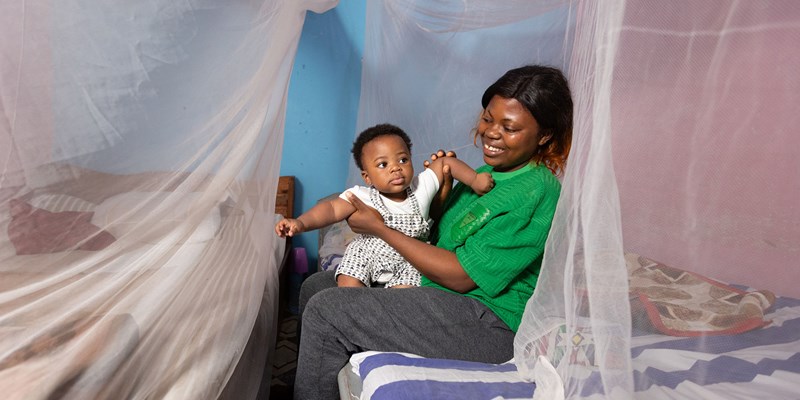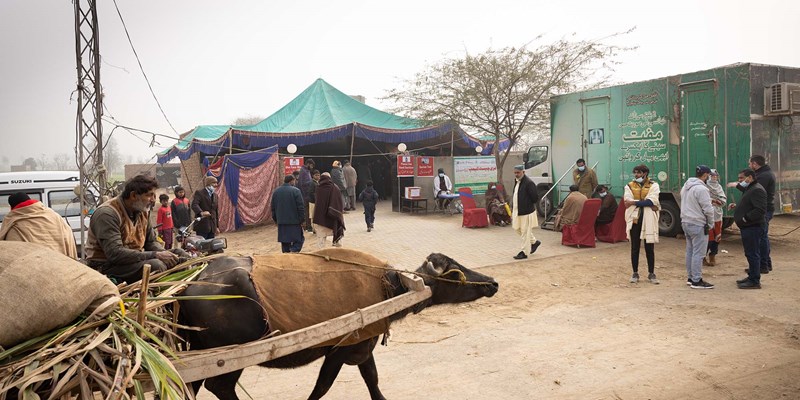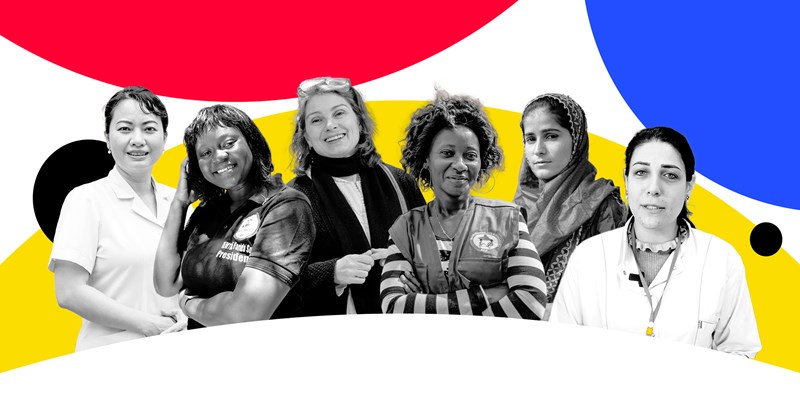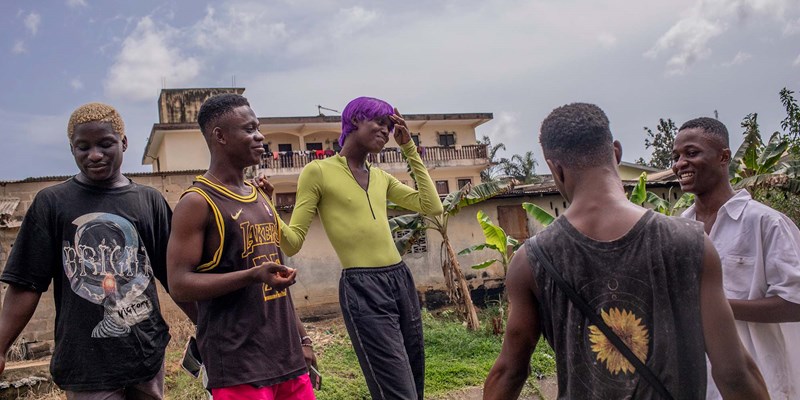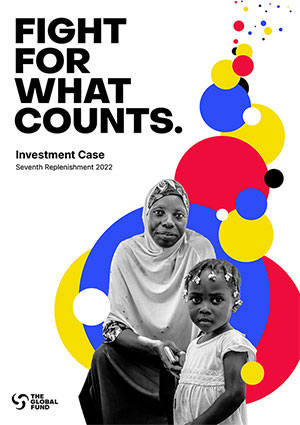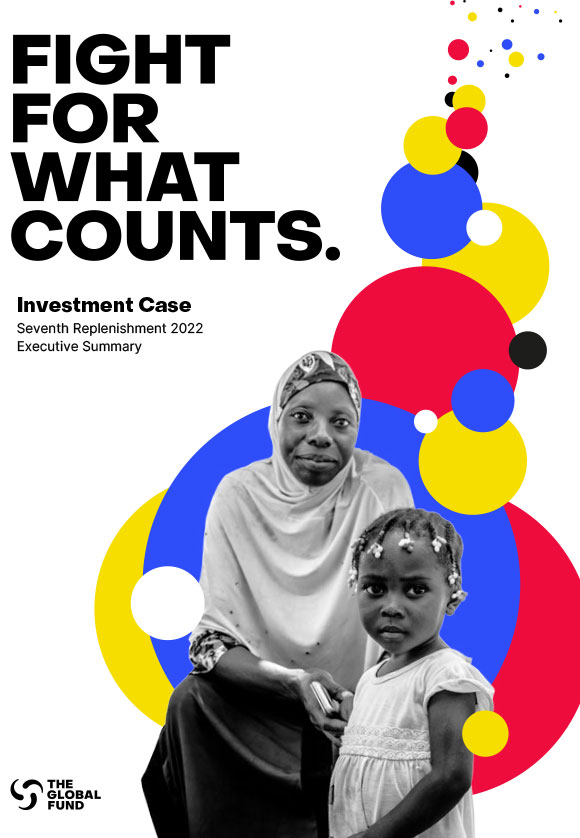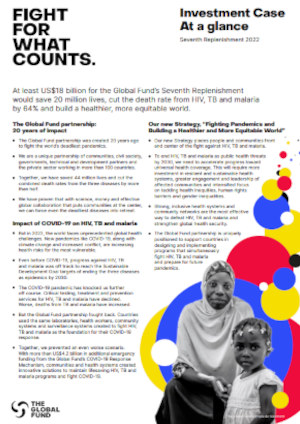Global Fund awards $866 million in grants to fight AIDS, TB and Malaria. United States takes chair of Global Fund Board; Tommy Thompson is elected
31 January 2003
Geneva, Switzerland – Grants committing up to US$ 866 million over two years were awarded today by the Global Fund to Fight AIDS, Tuberculosis and Malaria to help 60 countries rapidly scale up programs to stop these diseases. Much of the money will go to NGOs and the private sector, complementing the efforts of governments.
"The Global Fund’s newest grants are quickly taking public/private partnerships to scale to make a broad global impact against AIDS, tuberculosis and malaria,” said Richard Feachem, executive director of the Global Fund. “Not only is the Global Fund encouraging the most effective players to work together to get the job done on the front lines of the epidemics, it is also helping donors coordinate efforts, reduce waste and focus on achieving results.”
Sixty per cent of the new money will go to fight HIV/AIDS. The Global Fund will increase six-fold the number of people being treated with antiretrovirals (ARVs) in Africa with grants from its two initial proposal rounds, ensuring that 500,000 additional people receive these medicines in developing countries.
All of the AIDS grants include prevention components; 98 per cent use targeted communication campaigns to change the behavior of vulnerable groups, including youth and school children, and 70 per cent include prevention of mother to child transmission (PMTCT) and voluntary counseling and testing (VCT). Also, the AIDS grants will provide care and support to 500,000 AIDS orphans and vulnerable children.
With the new funds, 30 million African families will now be protected from malaria with treated mosquito nets, making the Fund the biggest purchaser of mosquito nets in the continent. In addition, Global Fund grants will now provide more than 4 million courses of treatments of the new and more effective arteminisin-based medicines for Africans with resistant strains of malaria. Currently, only 15,000 people in Africa are being treated each year with these medicines
The new grants will also help treat 2 million people with tuberculosis over the next five years through the highly effective DOTS strategy. Without these services, most of these people would either continue infecting others with the disease or die. In many African and Asian countries, where 30 per cent to 70 per cent of people are co-infected with TB and HIV, DOTS treatment services can ward off a pervasive infection which threatens the lives of those living with HIV/AIDS. A third of the TB grants also contain a component for curing people with drug-resistant strains of the disease.
Africa was awarded the majority of funding, receiving 60 per cent of all financial support. In Africa, Ethiopia recieved the greatest support, as it will be provided with up to $93.3 million over two years for programs to combat AIDS and malaria. Mozambique will receive up to US$54 million over two years for its proposals to involve community, government and NGO initiatives in addressing HIV/AIDS, tuberculosis and malaria. Namibia will use up to US$ 26.1 to support 150,000 orphans and children affected by HIV. In Sierra Leone, up to US $2.5 million will be spent to rebuild two dozen tuberculosis treatment clinics that were destroyed during the country’s recent civil war.
The Global Fund also awarded malaria grants totaling up to US$ 27 million over two years to Sudan. In an example of how the pursuit of health can bring together populations, even those at war, representatives of the Northern government in Sudan and representatives of the Sudanese People’s Liberation Army agree jointly to submit two Global Fund proposals under the umbrella of the World Health Organization.
Three states in India received the largest single country grant within Asia, up to $38.8 million for proposals for tuberculosis and HIV/AIDS over two years, the latter increasing their program for HIV/AIDS prevention and care for pregnant women, their babies and their families. Over the full term of the five-year proposals, more than 7 million pregnant women in the three states will be offered HIV testing and counseling, and over 350,000 of them will be provided antiretroviral prophylaxis to help prevent transmission to their babies. The tuberculosis component addresses the reality that 55-60 per cent of people living with AIDS in India also have tuberculosis.
Along with the grants awarded last April, the second round grants commit the Fund to disbursing up to US$ 1.5 billion in 2003 and 2004. Based on performance, these grant recipients are eligible for up to US$ 2.2 billion more after 2004.
At the close of its fourth Board meeting, financial statements made clear that Global Fund lacks the resources to approve a third round of grants in October 2003. At least US$ 6.3 billion in additional total contributions are needed over the next two years.
* * *
The Global Fund also announced today that its Board elected Tommy Thompson, US Secretary of Health and Human Services, as its Chair. He will succeed Dr Chrispus Kiyonga of Uganda. Thompson was elected by consensus of the Fund’s Board, which include donor and recipient governments, as well as NGOs, foundations and the private sector.
Dr Suwit Wibulpolprasert, Deputy Permanent Secretary for the Thailand Ministry of Public Health, was elected as Vice Chair. He will succeed Mr Seiji Morimoto of the Ministry of Foreign Affairs in Japan.
The positions of both Chair and Vice Chair of the Board came up for re-election with the expiry of the terms of both officials. Both Dr Kiyonga and Mr Morimoto will retain their seats on the Board.
Secretary Tommy Thompson said, “It is a privilege to be selected to serve as Chair of the Board of the Global Fund. I look forward to being actively engaged at Board meetings as we work together as responsible stewards of the generous resources entrusted to us. As President Bush made clear in his address to the American people on Tuesday evening, the United States of America is committed to the fight against global AIDS. We are proud to partner with the Global Fund, with our allies, and with every man, woman and child on this planet as we seek to end this plague.”.
